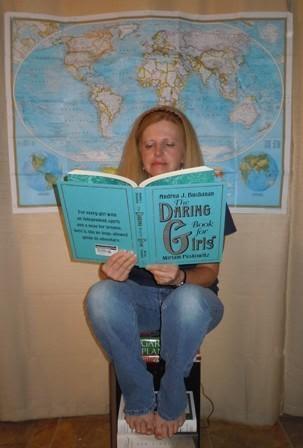Cheryl Hughes: Left Out
When my youngest daughter, Nikki, was about ten or twelve, she and I and some of her friends were watching the movie, “The War,” together. The movie is about a Viet Nam veteran trying to adapt to civilian life and struggling to make a living for his family in a rural community, where jobs are few and far between. He and his kids are picked on by a family of bullies next door. One night at the local carnival, the dad leaves his son by the car as he goes back to get cotton candy to take home to his wife and daughter. While he is gone, the bullies show up and pounce on the young boy. The father returns and breaks up the fight. He puts his young son in the car then returns to where the kids who just beat up on his son are standing. They start to back away as they see the father approaching. To their surprise, he gives the cotton candy to the two youngest kids and walks back to his car. His son is flabbergasted.
“Why did you give them the cotton candy,” he asks.
“Because they look like they haven’t been given anything in a long time,” the father answered.
It was at that point that Nikki looked at me and said, “That’s what you would have done Mama.”
I could have lived for the rest of my life on that one affirmation from my child, and I realized then and there that my having been left out as a child was not in vain. It had made me a compassionate person to the downtrodden, even those who seemed unreasonable to others.
I think that memory came back to me this week because of something my daughter, Natalie, said to me. She told me there was going to be a father/daughter dance at my granddaughter, Sabria’s, school. The cost would be ten dollars per couple. “What about the girls whose dads don’t have the twenty dollars?” she asked.
I’ve been asking some form of that question all of my life. There are many factors and questions that precede that question, though. For one, where will the funds come from to keep the school able to offer their students the curriculum that will equip them for a life in which they are able to compete once they are on their own? State and federal funds go only so far. Teachers and administrators have to be creative in their fundraising, hence events like the father/daughter dance. I personally know many of the people in the school Sabria attends, and I don’t believe any of them set out with the goal of leaving someone out.
In many studies involving capitalism, the terms “equality of opportunity” and “equality of outcome” are bantered about. Equal opportunity is a big deal in our country, as it should be, but it doesn’t always conclude with equality of results. Democracy means two individuals can take the same opportunity and one could squander it while the other makes something of it.
With all that said, there are still people who give it everything they’ve got, and things still don’t work out for them. Those are the people included in Natalie’s question, “What about the girls whose dads don’t have the twenty dollars?” I answered the only way I knew how, “Maybe, we could sponsor one father/daughter pair. We could ask someone at the school to suggest a father and daughter we could help.”
Sometimes, all you can help is one person or one family, but your influence can stretch across generations. I know this to be true from personal experience. There was a couple in the Methodist Church at Mt. Washington, Mr. and Mrs. Clark, who made it their personal mission to help our family. We weren’t on the same social level as the Clarks, but they never made us feel we weren’t good enough. They were kind and they included us and that meant more to me than they ever realized. The effects of that friendship are still at work in my life and my daughters’ lives every time one of us reaches out to help someone who is downtrodden. And that’s the way change really happens, one life at a time.
- Log in to post comments



























